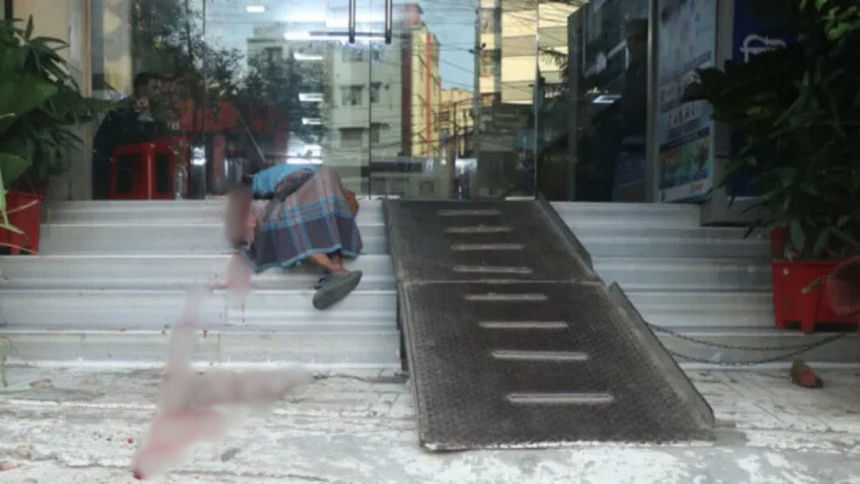Arresting scapegoats will hardly make a difference

The recent arrest of five hospital staff members, including a doctor, for the tragic death of rickshaw-puller Ismail during the July Uprising is a gross miscarriage of justice.
Ismail, a victim of police brutality, was shot during the protest and left to die outside the gate of a hospital in Rampura, Dhaka. Even after pleading for treatment, he was denied treatment at the hospital. Instead of identifying and arresting the police officers responsible for the fatal shots, the authorities have arrested the hospital staffers, who were not primarily responsible for Ismail's state.
This incident raises a fundamental question: where are the police officers who fired those fatal shots?
It has been five months since the July Uprising. But have the police officers who been identified and taken into custody yet? Clearly not. Why have they not even been interrogated? That is a question the state must answer.
The law enforcers who brutally shot Ismail and took his life remain free to this day and that is the cold hard truth. They are most likely still in service. Yet, instead of pursuing these officers, the interim government has chosen to arrest the "powerless" hospital staffers.
The government's inability to enforce certain decision was highlighted just two days ago, on January 16, when the police attacked a peaceful demonstration by indigenous people. This underscores a troubling pattern of impunity. While the previous government disregarded human rights, this interim government is expected to uphold fairness and accountability.
This pattern of impunity emboldens law enforcement agencies to continue their reckless brutality, knowing they will not be held accountable. This is not justice; it is a deliberate deflection, an attempt to divert attention from the real perpetrators. It's a mockery, a sham.
We must not forget that during the uprising, hospitals faced immense challenges, yet doctors and hospital staff did everything they could to save the wounded, often risking their own safety in the process. These efforts should be acknowledged, not punished. Instead of offering praise, the government is criminalising the medical professionals.
Arresting these individuals is an easy way out. It is far simpler to target a doctor, a nurse, or a security guard—those who may have been powerless or under duress to act, rather than, holding the responsible police officers accountable for the unjust killing of an innocent man?
The only conclusion one might be able to draw from all this is that the home minister needs to muster enough courage and point his finger at the guilty parties not the scapegoats. Until the law enforcers who fired fatal shots, and those who ordered such action are brought to justice, this entire process will remain little more than a farce.
Arafat Rahaman is a journalist at The Daily Star

 For all latest news, follow The Daily Star's Google News channel.
For all latest news, follow The Daily Star's Google News channel. 









Comments